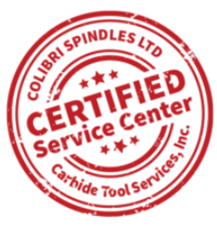How to Choose the Right Titanium Bolt and Nut for Your Project Needs
When embarking on any engineering or construction project, selecting the right components is crucial for success, and this is particularly true for the often-overlooked yet pivotal Titanium Bolt and Nut. According to a recent market analysis by Smithers Pira, the titanium fasteners market is projected to grow at a CAGR of 5.6% from 2021 to 2026, driven by increased demand in aerospace, automotive, and medical industries.
Titanium bolts and nuts are lauded for their incredible strength-to-weight ratio, corrosion resistance, and ability to perform under extreme temperatures, making them ideal for critical applications. However, navigating the myriad of options available can be challenging.
Understanding the specific project requirements, including load-bearing capabilities, environmental factors, and compatibility with other materials, is essential in making an informed choice. This guide aims to demystify the selection process for Titanium Bolt and Nut, ensuring you find the perfect fit for your project needs.
Understanding the Different Grades of Titanium Bolts and Nuts
When it comes to selecting titanium bolts and nuts for your project, understanding the different grades of titanium is crucial. Titanium is known for its high strength-to-weight ratio and corrosion resistance, but not all grades are created equal. The most common grades for bolts and nuts include Grade 2, Grade 5, and Grade 6. Grade 2 is commercially pure titanium, ideal for applications requiring good corrosion resistance and formability. Grade 5, also known as Ti-6Al-4V, offers enhanced strength and is ideal for high-stress environments. Grade 6 is often used in applications requiring extreme heat resistance.
Tips: When selecting titanium fasteners, consider not only the mechanical properties but also the operating environment. If your project will be exposed to seawater or harsh chemicals, opting for Grade 2 may provide the best performance. Conversely, for heavy-load applications in aerospace or automotive industries, Grade 5 is usually the preferred choice due to its superior tensile strength. Be sure to check the specifications for each grade to ensure they align with your specific project needs, as this can significantly affect the durability and safety of your assembly.
Factors to Consider When Selecting Titanium Fasteners for Your Project
When selecting titanium bolts and nuts for your project, several key factors must be considered to ensure optimal performance and reliability. One critical aspect is the grade of titanium you plan to use. Grades 5 (Ti-6Al-4V) and 2 are commonly preferred in the industry due to their excellent strength-to-weight ratio and corrosion resistance. According to a report by the Titanium Association, Grade 5 titanium offers a tensile strength of approximately 130,000 psi, making it suitable for high-stress applications, especially in aerospace and marine environments.
Another important factor to evaluate is the bolt and nut dimensions, including length, diameter, and thread pitch. It is essential to adhere to the appropriate standards, such as those outlined by the American Society for Testing and Materials (ASTM) and the International Organization for Standardization (ISO). These organizations provide guidelines to ensure that the fasteners fit securely and perform reliably under various loads. A recent study by ASTM found that improper sizing can lead to catastrophic failures in applications, emphasizing the need for precision in selecting fasteners tailored to the specific demands of your project.
Choosing the Right Titanium Bolt and Nut for Your Project Needs
Evaluating Load Requirements and Environmental Conditions
When selecting the appropriate titanium bolts and nuts, one must carefully evaluate the load requirements and environmental conditions specific to the project. Reliable performance under varying loads is crucial. Recent studies, such as those assessing load capacity factors in G7 countries, highlight the importance of considering economic and environmental factors. Factors like urbanization and environmental protections play a significant role in determining the load capacity, emphasizing the need for thorough analysis before selection.
Moreover, environmental conditions, such as temperature extremes and humidity, can greatly affect the performance of materials. The impact of digitalization and renewable energy usage also suggests a growing trend towards materials that adapt better to evolving conditions. Understanding these parameters will aid in making informed decisions, ensuring that the chosen titanium bolts and nuts meet both structural and sustainability goals for a successful project outcome.
How to Choose the Right Titanium Bolt and Nut for Your Project Needs - Evaluating Load Requirements and Environmental Conditions
| Bolt/Nut Type | Load Capacity (lbs) | Material Grade | Corrosion Resistance | Ideal Applications |
|---|---|---|---|---|
| Grade 5 Titanium Bolt | 1,200 | Ti-6Al-4V | Excellent | Aerospace, Marine |
| Grade 2 Titanium Nut | 800 | Ti-CP | Good | Chemical Processing, Sports Equipment |
| Grade 5 Titanium Lock Nut | 1,000 | Ti-6Al-4V | Excellent | Aerospace, Automotive |
| Grade 2 Hex Bolt | 700 | Ti-CP | Fair | Lightweight Structures, General Use |
| Grade 5 Flange Nut | 1,100 | Ti-6Al-4V | Excellent | Marine, High-Stress Applications |
Comparing Coatings and Finishes for Enhanced Performance
When selecting titanium bolts and nuts for your project, the choice of coatings and finishes is crucial for enhancing performance and longevity. Various coatings, such as anodizing or ceramic finishes, can improve corrosion resistance, reduce friction, and ensure better adherence to the substrate. Anodizing not only provides an aesthetic appeal with diverse color options but also protects the titanium from environmental elements, making it suitable for outdoor applications.
Another popular option is a titanium nitride (TiN) coating. This finish creates a hard, wear-resistant surface that significantly increases the lifespan of the fasteners. Additionally, coatings like PTFE (Teflon) can reduce friction during assembly and disassembly, which is particularly beneficial in dynamic applications where parts are frequently adjusted or moved. Each coating serves a specific purpose, and understanding the project requirements, such as exposure to chemicals or extreme temperatures, will guide you in choosing the right finish for optimal results.
Best Practices for Sourcing High-Quality Titanium Fasteners
When sourcing high-quality titanium fasteners, it's essential to prioritize reliability and performance to ensure the success of your project. Titanium bolts and nuts are known for their excellent strength-to-weight ratio and corrosion resistance, making them an ideal choice for various applications, from aerospace to automotive industries. However, not all titanium fasteners are created equal; understanding the specifications and standards is crucial for making informed decisions.
Tips: Always verify the grade of titanium used in the fasteners. Grade 5 (Ti-6Al-4V) is commonly used for its strength and toughness, while Grade 2 offers good corrosion resistance for less demanding applications. Additionally, seek out manufacturers that adhere to recognized quality standards, ensuring that the materials undergo rigorous testing.
With recent industry developments affecting titanium manufacturing, such as acquisitions of leading fastener manufacturers, it’s wise to keep an eye on market trends. This not only informs you about which suppliers to trust but also helps in finding innovative products that can enhance your project’s overall performance. By collaborating with reputable suppliers and being aware of the latest advancements, you can secure the best titanium fasteners suitable for your specific needs.

